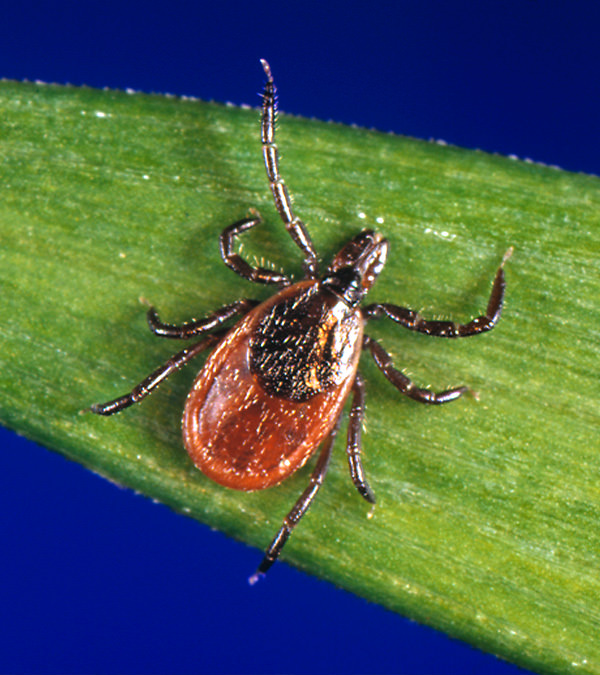Lyme disease is one disease I have noticed our canine companions have become more frequently exposed to each subsequent summer in the Upper Peninsula. That is why I’m going to educate you on exactly what Lyme disease is, how dogs get it, and why your pet should be on preventatives and annual vaccinations for the disease.
Lyme disease is caused by a bacteria called Borrelia burgdorferi. This bacteria is transmitted to a dog and even people through the bite of a tick, specifically the blacklegged tick (also known as the deer tick) which is very prevalent up here in the U.P. The highest risk for ticks transmitting the bacteria is during the spring, summer, and fall months when the nymphs and adults are seeking hosts. If you are someone that likes to travel out of state with your companion, then I ask you to be wary of the Midwest, Pacific coast and the Northeast in the United States for those are also a few areas with the highest infection rates for Lyme disease.
The clinical signs of Lyme disease can vary in a dog. Many of them can be asymptomatic which means they show no signs of having the disease. The most common clinical signs include fever, a loss of appetite, painful/swollen joints, intermittent lameness, enlarged lymph nodes, and lethargy. The second most common sign is acute kidney failure which is generally fatal for dogs. Lyme disease is normally diagnosed based on its clinical signs, history, and blood test which we screen for during routine heartworm tests.
It is important to have your veterinarian prescribe a course of antibiotics to start treatment if they are diagnosed with Lyme disease. If left untreated, the bacteria will cause damage to the kidneys, heart, and potentially the nervous system. As you can see, Lyme disease can be a very serious infection your dog can acquire from tick exposure. That is why it is important to have your pet on monthly flea/tick preventatives during the spring, summer, and fall months (or annual if you travel south) to reduce tick exposure.
However, even if the animal is on the preventatives, a tick can still bite the dog before it dies and transmit the Lyme disease. That is why I also recommend having your animal on an annual Lyme vaccination to almost completely eliminate the chances of your dog contracting the bacteria or having recurrent infections of the disease in the future.
I appreciate you taking the time to read my first official blog post! It has been great to see (or partially see) your faces and officially introduce myself to some of you. The first few months of practicing in Marquette have been busy, but very rewarding. I hope you have learned something from this post and that you and your pets stay healthy.
Dr. Edward G. Brauer III


Recent Comments